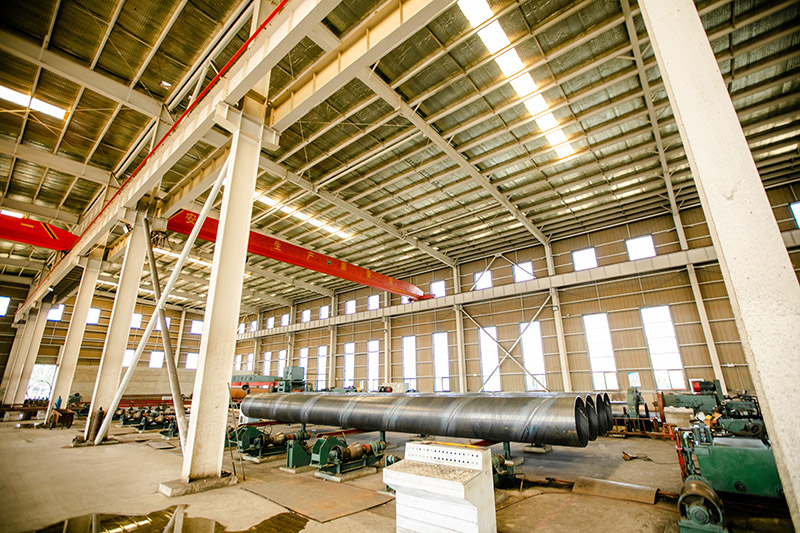Introduction:
In groundwater line construction, pipe selection plays a vital role in ensuring its durability and long-lasting performance. Metal pipe welding technology has evolved over time, with alternatives such as spiral seam pipes emerging. In this blog, we will explore the advantages of using spiral seam pipes in groundwater lines and how they address the challenges associated with these critical infrastructure projects.
Advantages of spiral seam pipes:
Helical seam pipe is becoming increasingly popular in the construction industry, especially for underground water line installations. These pipes are made using a unique spiral seam welding technology. This process ensures a continuous and uniform seam along the length of the pipe, offering several advantages.
One of the main advantages of helical seam pipe is its exceptional strength. Continuous seams help improve the structural integrity of the pipe, making it highly resistant to leaks and corrosion. This characteristic is critical in groundwater line applications because these pipes are constantly exposed to varying soil conditions and water tables.
Additionally, spiral seam pipes are known for their tight and precise tolerances, which help minimize the risk of water loss due to external influences. The precise alignment of the spiral seams improves the overall hydraulic efficiency of the pipe and ensures stable and reliable water flow.
In addition, the welds in the spiral seam pipe enhance its load-bearing capacity, an important aspect when constructing underground water lines. The added strength enables the pipe to withstand the pressure exerted by the surrounding soil, preventing any deformation or collapse.
Address the challenge:
Groundwater line installations present a unique set of challenges. These include soil movement, leaking pipe joints and corrosive environments. Fortunately, spiral seam pipes effectively address these challenges and provide a viable solution.
Continuous seam welding in spiral seam pipes enhances their ability to prevent leakage. This quality significantly reduces the risk of water loss due to pipe joint failure, ensuring a more reliable water supply. Additionally, there are no joints along the length of the pipe, eliminating potential weak points prone to leaks, making it ideal for transporting water over long distances.
Spiral seam pipes are also designed to withstand the corrosion of underground environments. They are often coated with a protective coating to resist the corrosive effects of soil and groundwater contaminants. This corrosion resistance extends the life of the pipe and reduces the need for frequent maintenance, making it a cost-effective choice for groundwater line projects.
Conclusion:
In summary, spiral seam pipes offer many advantages over traditional groundwater line pipes. Its continuous seam welding technology ensures superior strength, leak resistance and corrosion resistance. These qualities, coupled with precise tolerances and load-carrying capabilities, make spiral seam pipe a reliable, durable solution for long-term water pipe installations. By choosing spiral seam pipes, we can ensure an efficient and sustainable water supply, contributing to the overall growth and prosperity of our communities.
Post time: Oct-08-2023

